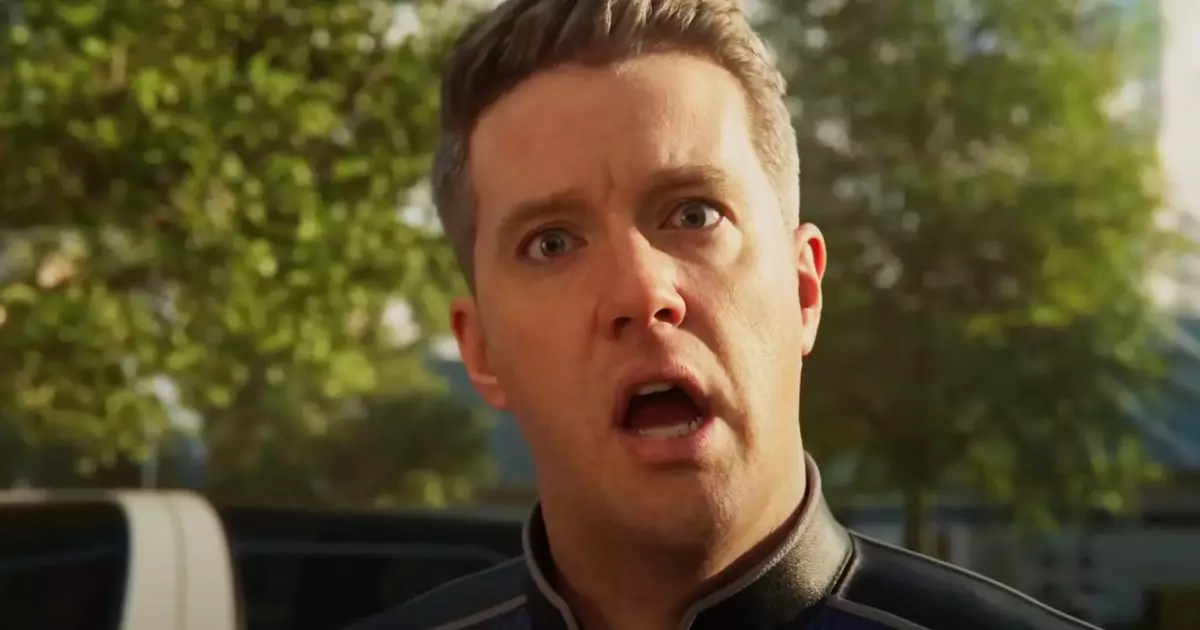In a surprising departure from conventional game narratives, Helldivers 2’s latest directive pushes players into a vivid landscape of relentless violence framed as patriotic duty. Instead of subtle storytelling or nuanced diplomacy, Arrowhead’s developers are openly demanding players to embrace their role as fierce defenders of Super Earth through mass destruction. This isn’t warm encouragement; it’s a stark, almost dystopian call to brutal action designed to evoke a visceral response. The game’s current objectives—mow down hordes of enemies like Shriekers, Impalers, and Leviathans—are presented as steps toward restoring citizens’ faith in their protectors. This heightened emphasis on violence as a solution reflects a worldview where strength and aggression are the only pathways to social order, a perspective that I find both provocative and troubling.
The narrative framing of this new directive reveals an underlying reflection of societal anxieties about chaos and security. The game content emphasizes the psychological impact of warfare—images of city ruins, civilian casualties, and fear-mongering news broadcasts—mirroring real-world issues surrounding misinformation, war fatigue, and public distrust. The game isn’t just a shooter; it implicitly asks players to confront the unsettling notion that violence is depicted as a necessary evil to soothe collective anxiety. Such messaging risk oversimplifying complex socio-political dilemmas into mere game mechanics, but it also offers a satirical mirror to the war-centric narratives often fed by governments and media, exaggerating their absurdities to provoke reflection.
Satire and Self-awareness: The Over-the-Top Narrative as a Cultural Mirror
What’s most compelling about Helldivers 2’s current campaign is its layered satire. The game’s exaggerated focus on “murder-death” missions for the sake of public reassurance veers into parody territory, openly mocking the obsession with militaristic solutions in real-world geopolitics. Names like “Fort Union,” “Fort Sanctuary,” and “Emeria” sound almost comically generic—yet they serve as symbols of how modern militarized spaces imitate branding more than strategic planning. The overuse of hyper-aggressive language, such as “kill millions of enemies,” combined with public relations language about psychological impacts, creates a satirical commentary on how states and corporations often manipulate crisis responses to justify more violence.
Furthermore, the release of the Ingress-81 cape as a reward for community participation in an alternate reality game (ARG) exemplifies the increasingly intertwined relationship between gaming, culture, and marketing. By tying in a complex narrative device—the DCON DCON pattern on the cape—to an in-universe event, Arrowhead blurs the lines between entertainment and geopolitics, humor and propaganda. This layered approach invites players to reflect on their own complicity in consumer-driven war narratives, even as they enjoy the catharsis of digital carnage. The game’s self-awareness becomes an integral part of its satire, revealing that behind the hyper-violent veneer lies a keen commentary on the spectacle of modern warfare.
The Irony of Victorious Violence: A Reflection on Player and Society Engagement
While some might dismiss these developments as mere game fluff or marketing gimmickry, I believe they unearth a deeper truth about societies obsessed with conflict as a primary means of resolution. Helldivers 2 encourages players to feel empowered through mass violence, but it simultaneously exposes the absurdity of war as a fix-all solution. The exaggerated kill counts—millions of enemies to be eradicated—are not functional goals but symbolic gestures that critique the dehumanization inherent in war narratives.
This approach raises essential questions: Is this glorification of violence ultimately a reflection of real-world ethos cultivated by media, politics, and social discourse? Or is it a satirical mirror meant to hold a mirror up to our culture’s fascination with destruction? Personally, I see it as a poignant indictment wrapped within a flashy shooter—a call for players to question the stories they consume and participate in. The game’s humor, layered with grim critique, exemplifies how entertainment can serve both as escapism and as pointed social commentary.
Moreover, this emphasis on brutal warfare underscores an uncomfortable truth: that our collective psyche sometimes equates strength with virtue. Achieving peace, as Helldivers 2 suggests, isn’t about negotiation or understanding but through relentless domination. Such messages influence not just players but also reflect societal attitudes toward conflict resolution. Whether intentional or not, the game holds up a mirror—sometimes grotesquely so—on our tendency to see violence as the ultimate answer, highlighting the need for a more nuanced, empathetic outlook.
—
In essence, Helldivers 2’s latest updates are more than mere game content; they are a reflection—sometimes a satire—of our complex relationship with violence, security, and propaganda. Whether this bold stance will inspire players to consider the implications or merely revel in chaos remains to be seen, but the game undeniably pushes the boundaries of how we perceive conflict both in virtual worlds and reality.

